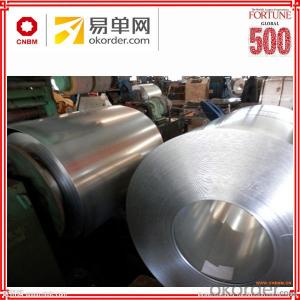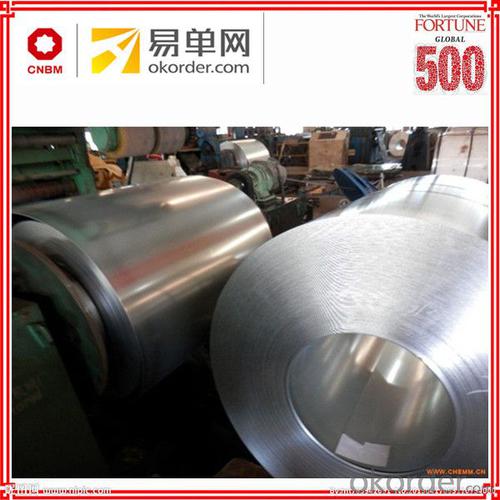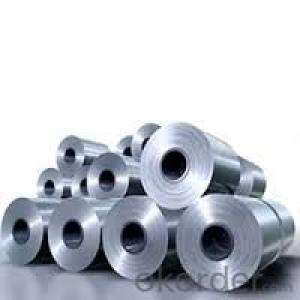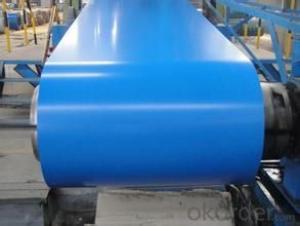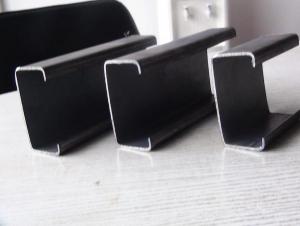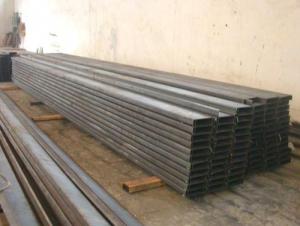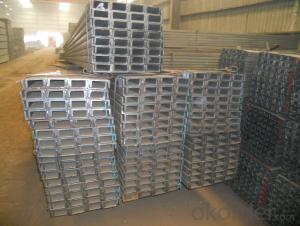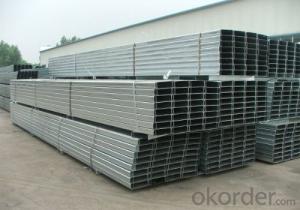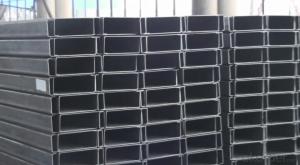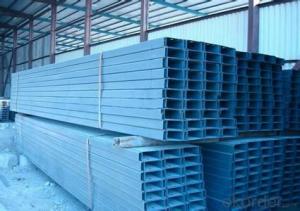Cold rolled steel channel offer free samples
- Loading Port:
- Tianjin
- Payment Terms:
- TT OR LC
- Min Order Qty:
- 50 m.t.
- Supply Capability:
- 63450 m.t./month
OKorder Service Pledge
OKorder Financial Service
You Might Also Like
Specification
These cold rolled steel coil/sheet grades have excellent formability, which facilitates cold forming operations, and are ideal for deep drawing. Our range of steels for cold forming offer excellent forming performance, due to the low scattering of their chemical composition and their mechanical properties, which guarantees processing consistency.
It is suited to formation by bending or drawing, which enables complex parts to be produced in good repeatable conditions and intended for indoor use.
Cold Rolled Steel coil is a mill product made with a high degree of gauge accuracy and uniformity of physical characteristics. The smooth deoxidized matte finish gives an excellent base for paint, lacquer and enamel. Box annealing and absence of scale permit stamping and moderate drawing operations. Sheets bend flat on themselves without cracking. Oiling protects Surface against rust. The application of surface oil to cold rolled steel coil/sheet is intended to provide protection from corrosion ("rusting") during shipment and warehousing. Because cold rolled steel sheet is prone to rusting, standard practice is to apply a rust-preventative oil at the exit end of the temper mill (the last processing step).
Standard and Grade :
Cold rolled steel coils | ||||
JIS G3141-2005 | EN10130-2006 | ASTM A1008-12a | ||
Commercial quality | SPCC | DC01 | CS Type A/B/C | |
Drawing quality | SPCD | DC03 | DS Type A/B | |
Deep drawing quality | SPCE SPCF(non aging) | DC04 | DDS | |
Extra deep drawing quality | SPCG(non aging) | DC05/06 | EDDS | |
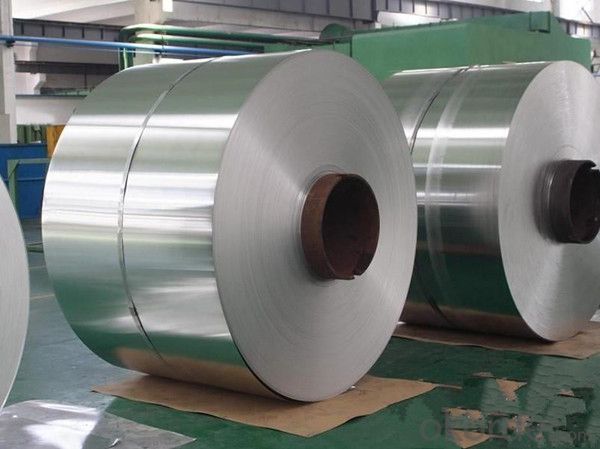
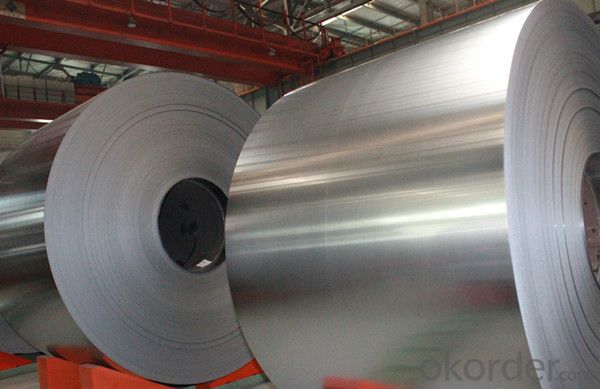
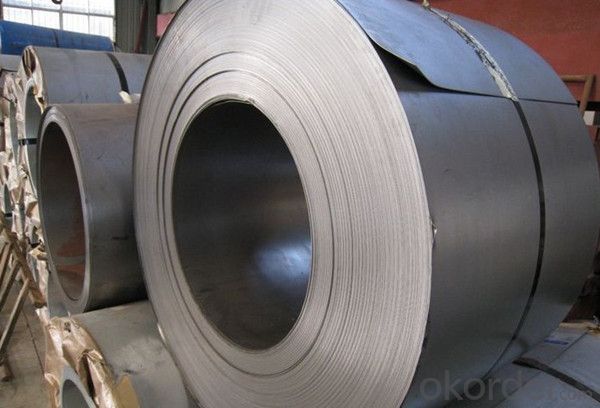
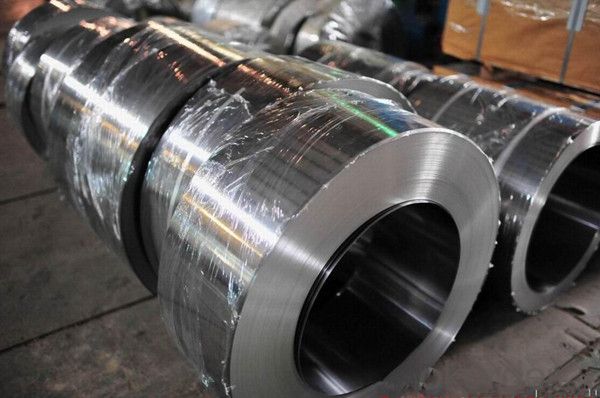
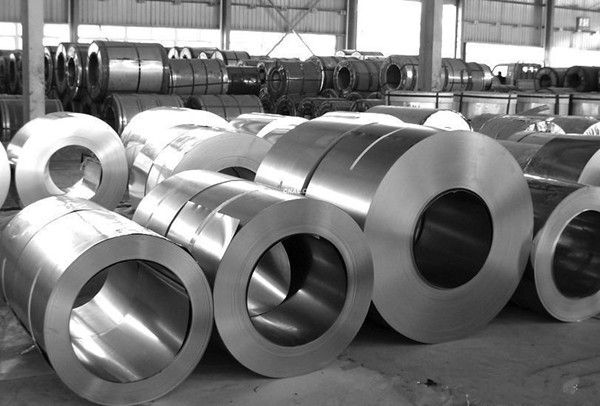
Application :
Automobile Industry, White Goods, Home Applicances, Oil & Air filters, semi product for coating with enamel or zinc,
construction & building sector, air-conditioning, furniture, radiators, tubes, profiles, mechanical construction, shelving,
containers, drums
Packing:
Packaging Detail | The packing of coil consists of anti-damp paper ,PVC film ,hardboard paper , steel box , strapped with steel strips, fitted with locks and edge protectors and guarantees the optimal condition of the delivered goods. Each coil can be additionally fitted with wooden/steel skids(eye of the side) or wooden pallets(eye of the sky) |
Delivery Time | within 30 days of receipt of LC original or prepayment |
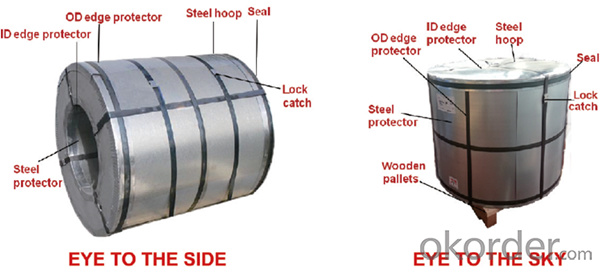
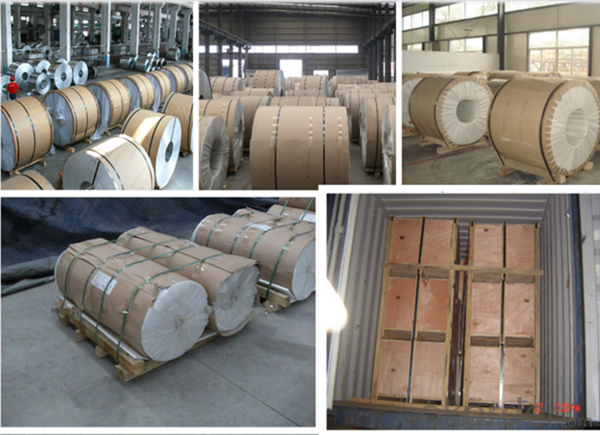
FAQ:
1. Can you offer OEM to me? What about MOQ?
Of course, we are a professional with OEM manufacturer for 9 years. the MOQ can be 50 ton/ order..
2. How to guarantee the quality of the products?
We have established the international advanced quality management system,every link from raw material to final product we have strict quality test;We resolutely put an end to unqualified products flowing into the market. At the same time, we will provide necessary follow-up service assurance.
3. How long can we receive the product after purchase?
Usually within thirty working days after receiving buyer’s advance payment or LC. We will arrange the factory manufacturing as soon as possible. The cargo readiness usually takes 15-25 days, but the shipment will depend on the vessel situation.
4.How Can I Get Some Sample?
We are honored to offer you free sample, but courier charges will be on your side.
- Q: What is the standard width of steel coils?
- Depending on the industry and application, the width of steel coils can differ. Generally, steel coils have a standard width range of 36 to 72 inches. The actual width is influenced by various factors including the type of steel, intended use, and the machinery involved in processing and handling the coils. To ensure the appropriate width for a specific steel coil application, it is crucial to refer to industry standards and specifications.
- Q: What are the dimensions of steel coils used in the metal furniture industry?
- The dimensions of steel coils used in the metal furniture industry can vary depending on the specific requirements of each manufacturer. However, commonly used dimensions include coil widths ranging from 24 to 60 inches (61 to 152 cm) and coil diameters ranging from 36 to 72 inches (91 to 183 cm). The thickness of the steel coils can also vary, typically ranging from 0.020 to 0.250 inches (0.05 to 0.64 cm). These dimensions allow manufacturers to efficiently produce various types of metal furniture, such as chairs, tables, and cabinets, by utilizing the steel coils as raw materials for their production processes.
- Q: Is it just because brass is reloadable? But what makes it reloadable? What does brass bring to the equation that the steel cased ammo can't do?
- When 9mm was short I bought some steel Tula ammo, it was cheap and available. When at the range I was shooting it and it sounded different and felt different, way less kick. So I loaded up a mix of Tula and some Federal. Big difference between them. I also had failure to eject on the steel, then put brass in and did not have that problem. I do not buy cheap steel ammo anymore.
- Q: so i just bought a stainless steel bracelet.......and recently found out that stainless steel isnt actually stainless..........will turpentine ruin it
- real s/steel is nickel and chrome, however manufacturers of kitchenware, e.g s/teel cutlery use the cheaper version of nickel chrome and iron, that is why some s/steel products rust, so if you want to test any products carry asmall magnet and test the article
- Q: I heard that the stores don't sale Steel Legion anymore...Is this true..Also I want to know why they cost more than regular Imperial Guardsmen..Such as Cadian...Do they have something Special?Also what do I need to buy to have a complete Steel Legion army..I need two squads of troops of 20's?and two sergeants for each squad.and one commiser?Well I;m guessing..someone please help...I havent played in about 4 years.
- The stock at various shops may vary, but you can buy Steel Legion miniatures through the mail order, or the Internet from GW. Cadian troopers are plastic, There are no plastic Steel Legion troops. The plastic models are (a tiny bit) not so horribly expensive as the metallic ones. The minimum requirements for your force vary from mission to mission, but a good start is 1 HQ unit 2 Troop choices. Also, the total points cost of the battle is to be considered. (Usually 500, 1000, or 1500 points.) What you described is one possible choice, although the size of IG squads is 10 and not 20. And you must include a command squad, the commissar is optional. You might change the other 20 troops for a tank, or a squad of Sentinels. Happy gaming!
- Q: How are steel coils measured for thickness?
- Steel coils are measured for thickness using a device called a micrometer or a thickness gauge. The micrometer is pressed against the coil's surface, and the measurement is displayed on its calibrated scale, providing an accurate reading of the steel coil's thickness.
- Q: How are steel coils used in the production of steel clamps?
- Steel coils are used in the production of steel clamps as the primary raw material. The coils are fed into a machine that cuts, shapes, and bends them to create the desired clamp design. The strength and durability of the steel coils ensure that the resulting clamps are capable of securely holding objects together.
- Q: How are steel coils used in the production of metal ductwork?
- Steel coils are used in the production of metal ductwork as they provide a continuous and flexible supply of raw material. These coils are unrolled, cut, and shaped into specific dimensions to create the ductwork components. The steel's strength and durability make it suitable for handling high air flows and maintaining structural integrity, ensuring efficient airflow in heating, ventilation, and air conditioning (HVAC) systems.
- Q: How are steel coils used in the production of roofing panels?
- Steel coils are used in the production of roofing panels by being fed through a machine that shapes and cuts the steel into the desired panel size and shape. The coils are unrolled and flattened, then passed through a series of rollers to form the corrugated or flat panel profile. This process ensures the panels have the strength and durability required for roofing applications.
- Q: How are steel coils inspected for surface defects using non-destructive testing methods?
- Steel coils are inspected for surface defects using non-destructive testing methods such as visual inspection, magnetic particle inspection, and eddy current testing. Visual inspection involves closely examining the coil's surface for any visible defects or abnormalities. Magnetic particle inspection is used to detect surface cracks and defects by applying a magnetic field and then applying iron particles that reveal any magnetic leakage caused by defects. Eddy current testing is employed to detect surface cracks and defects by inducing an alternating current in a coil that creates a magnetic field, and any changes in the field caused by defects are detected. These non-destructive testing methods help ensure the quality and integrity of steel coils without causing any damage.
Send your message to us
Cold rolled steel channel offer free samples
- Loading Port:
- Tianjin
- Payment Terms:
- TT OR LC
- Min Order Qty:
- 50 m.t.
- Supply Capability:
- 63450 m.t./month
OKorder Service Pledge
OKorder Financial Service
Similar products
Hot products
Hot Searches
Related keywords
